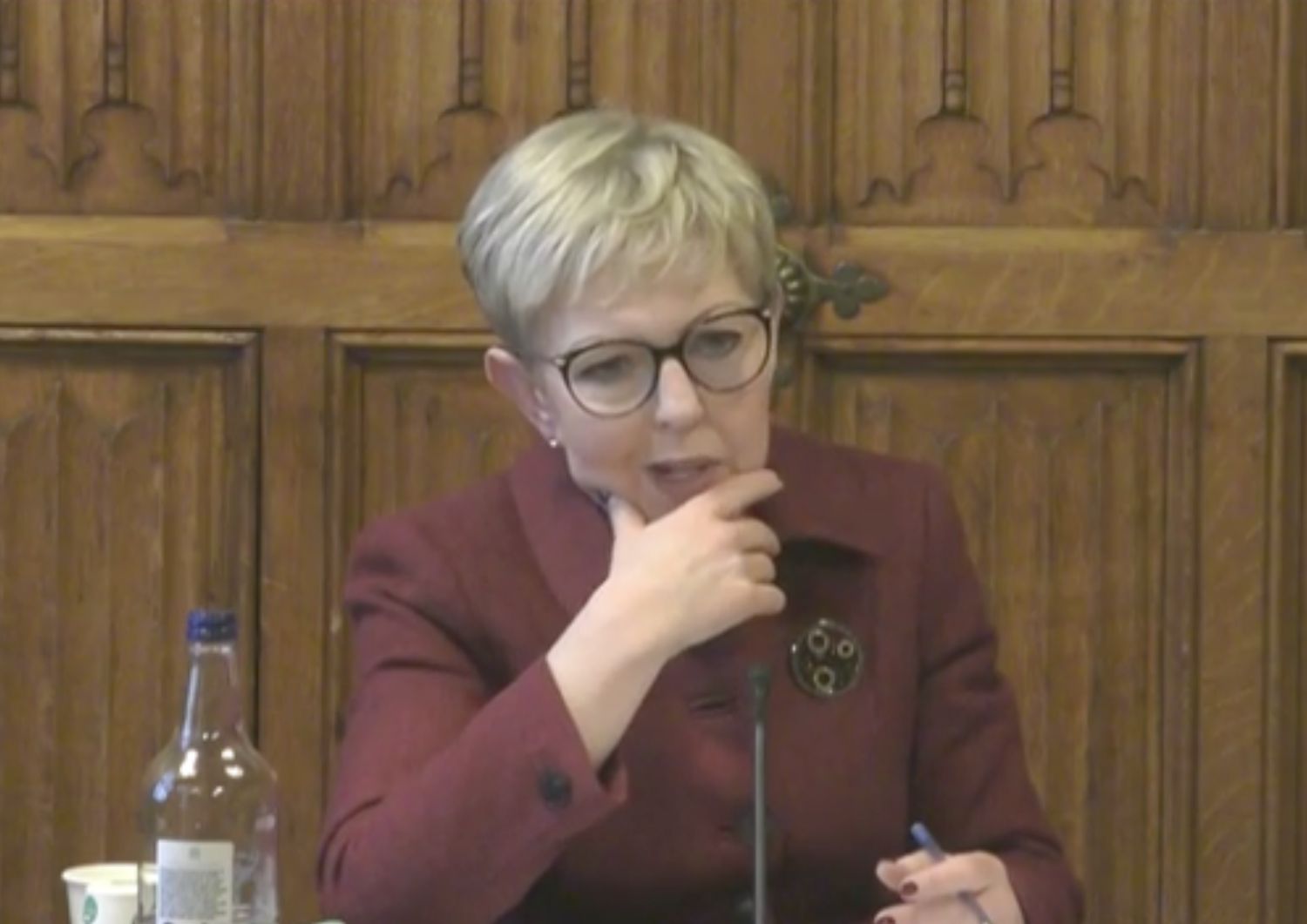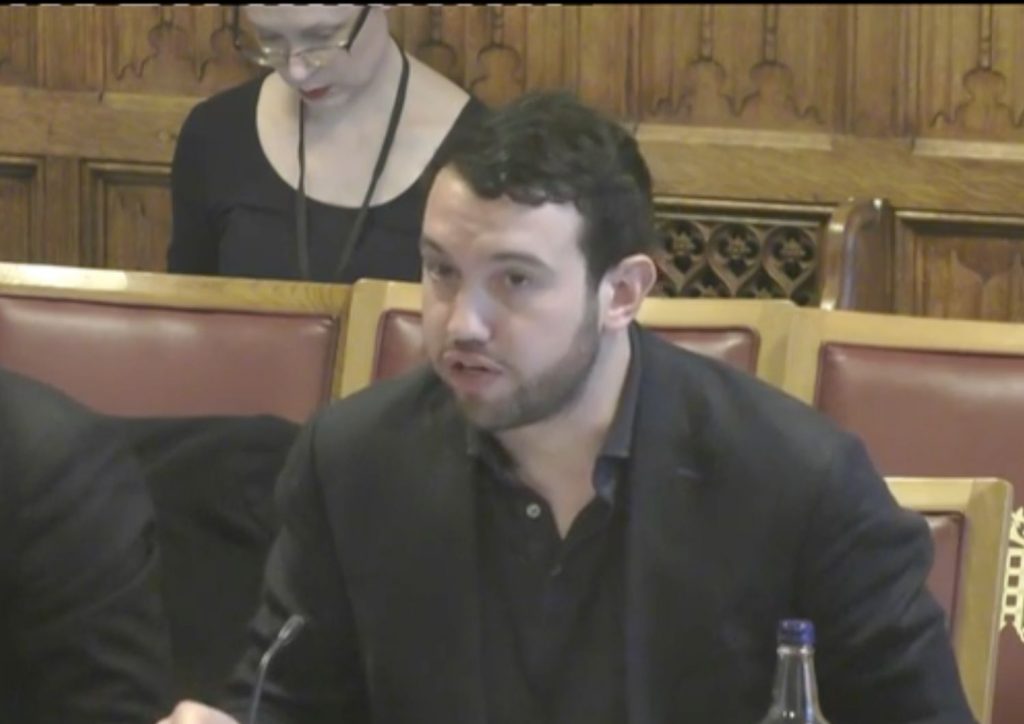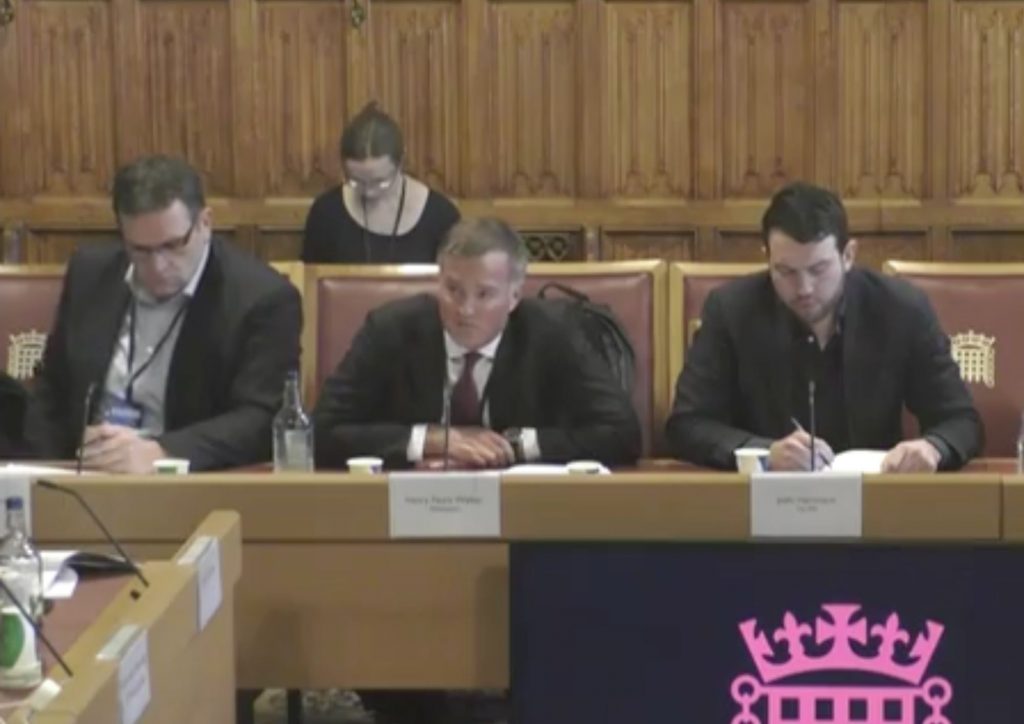Government advert cash is going to ‘zombie’ local newspapers, peers are told
Manchester Mill founder delivers sharp analysis behind loss of thousands of reporter jobs
Thursday, 29th February — By Richard Osley

Baroness Stowell said she was ‘baffled’ by contrasting accounts of the state of local news
A TORY peer told bosses at two of the big local newspaper groups that she was “baffled” by contrasting claims about the state of the industry, and the idea that quality had been maintained despite the loss of thousands of reporting jobs.
Baroness Tina Stowell, the chair of the House of Lords’ Communications and Digital Committee, said the anecdotal evidence that she and her colleagues had heard was more aligned with a warning from the founder of an independent news service, who said it was clear standards had fallen.
Her committee had brought together executives from Reach and Newsquest, which both own scores of titles across the UK; the latter’s large stable of publications includes ownership of the Ham & High and the Islington Gazette after an acquisition from the Archant newspaper group.
But, sitting in the next seat was Joshi Herrmann, the founder and editor of the Manchester Mill, an independent start-up which began life in 2020.
In a sharp analysis, he told peers: “The question of how has quality been maintained in local media generally, is that it obviously hasn’t. “In the local town near where my mum lives in Sussex, they used to have two local newspapers, both of which had an office on the high street. Now there is one newspaper and it doesn’t have any local coverage to speak of.
“There might be one story about the local town but the rest of it will be aggregated from other local communities where the same large news organisation owns other titles. It is effectively a zombie newspaper. It says it is about one town, but in fact it has content and stories from all over the county, and all over the country.”
He added: “So quality hasn’t been maintained. If you go on the websites of local newspapers, you will find all sorts of stories that are not journalism and not local, and you’ll find so many ads covering that content that it’s very difficult to read.”

Joshi Herrmann giving evidence to the Communications and Digital Committee in the House of Lords on Tuesday
Earlier Mr Herrmann, whose operation is powered by reader subscriptions and has won plaudits for its in-depth reporting, had cited a Press Gazette article which reported that it was estimated 6,000 local newspaper reporter jobs had been shed by the big companies in less than two decades. He said that the end result was bad for local democracy and the accountability that comes from having a strong press.
While Mr Herrmann had described some titles as descending into “zombie newspapers”, he said that larger publishers were still collecting the bulk of millions of pounds worth of public notices around the country, and were given most of the government advertising regardless of the quality of the newspapers.
He said that new life could be pumped into local news reporting if there was a flood of “new players” and innovations, but those trying to start independent titles had extra hurdles.
“My hunch is that we have a set of rules that are archaic, which essentially favour very large incumbents, so public notices – that’s around £40m of revenue for local news – it all goes to the very large companies, who have been cutting jobs for 20 years.”
He said: “Government advertising – again tens of millions of pounds a year – almost all of it goes to these very large companies. What that does in effect is disincentivises innovation because the new players can’t get any access to that revenue stream. I think there’s a chance we could have a renaissance in local news, high quality local news, in-depth reporting done by humans – not AI – but we need to create the conditions for that to be the case.”
The New Journal is an independent title which is not part of one of the three or four companies which have control of hundreds of local papers. With a newsroom retained in the heart of Camden, all of the revenue this newspaper raises goes into covering the costs of our journalism, and essential production and distribution costs. None of this money goes to pay shareholder dividends or executive pay.
Mill Media has since opened new operations in Liverpool, Sheffield and Birmingham. Mr Herrmann conceded that all operators – big and small – had faced challenging circumstances due to the loss of classified ads, and the arrival of internet giants such as Google and Facebook, which have been accused of hoovering up ad cash while downgrading web links to news sites.

The panel of speakers gets ready to take questions from peers
At one point in Committee Room 3 on Tuesday afternoon, Baroness Stowell looked at the representatives from Reach and Newsquest, and asked: “Could I just go back, the picture that Mr Herrmann has painted about public perception of local media. It is much more consistent with the kind of anecdotal evidence we hear about the quality of local news via local newspapers.
“The picture you [the newspaper groups] paint is one that seems quite different from what we’ve heard from any others. I’m just a bit baffled, by the picture you are painting about the success of your businesses when the challenge seems to be around the quality of the content.”
She later added: “We are very clear as a committee about the importance of local news, we’re not asking questions for any other reason, other than we really recognise the value and importance of it, it’s something that must continue into the future.”
Both Reach and Newsquest said they were looking at their websites, and moving to a subscription service to reduce the number of adverts people see – but that it was important that people could still get the chance to read their articles for free with the understanding that there would be more cluttered screens if they did, which in turn brought in the money needed to pay for editorial teams.
David Higgerson, chief digital officer at Reach, listed big stories that the company’s reporters had done on their titles recently, and said: “I would point out we do an awful lot of journalism which frankly nobody else does… “It’s very easy to pick sort of slithers of content on websites and say ‘that’s not local news’ or ‘that’s not quality journalism’, but pick up any local newspaper from the 1980s or 90s and you’ll see the same broad mix of content in those metro dailies as you see on our websites today.”
He added: “If I spoke to any of our news desks, they’d say they feel as connected as ever, largely because we have journalists out on the ground all the time. “We have shut a number of offices in a number of locations which hasn’t always been portrayed in the trade press as a popular move, but in many cases has resulted in our journalists being more active in the community.”
Henry Faure Walker, Newsquest’s chief executive officer, told the committee he felt more positive about the next five years than the last ten, and while the company had laid off a “significant amount” of reporters, this reduction had not continued in the last three years. He said the operation was now much more stable and bringing in “phenomenal” numbers of readers online and a loyal audience which kept returning to the site. He added: “I wouldn’t be too complacent, but we have a more stable core of advertising.”
The company has new AI tools for some copy-writing for quicker turnaround of stories, and he cited this as one of Newsquest’s leads on innovation. Mr Faure Walker said it was “not all roses” but added: “It’s easy to throw stones at the industry but there is a lot of work going on and the proof of the pudding is in the loyal audience.”
The committee is taking evidence from a series of speakers for an investigation titled: “The future of news: impartiality, trust and technology.”
The full session can be viewed on parliament.tv

